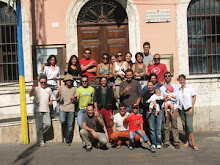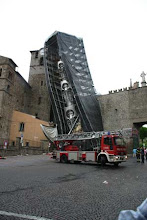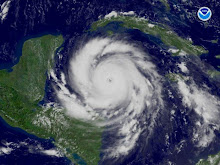Abstract: With the majority citizens having Chinese origin, Hong Kong embraces a lot of gods from ancient Chinese culture. Video games set in Hong Kong happen to cover quite a lot of these gods. In this article, we will check out who they are, their appearance in the video games, and their interesting ties with the city in the real world.
 |
| Hong Kong with ancient Chinese Gods. Image source: Wikipedia. |
Games covered in this article:
- Hong Kong Mahjong (Nine Dragon. DOS: 1991, Microsoft Windows: 1996)
- Shenmue II (Sega. Dreamcast: 2001, Xbox: 2002)
- Kowloon Magic (Bun Fun Factory. Microsoft Windows: 2003)
- Jet Li: Rise to Honor (SCEA. PlayStation 2: 2004)
- Resident Evil 6 (Capcom. PlayStation 3/Xbox 360: 2012, Microsoft Windows: 2013)
- Sleeping Dogs (Square Enix. PlayStation 3/Xbox 360/Microsoft Windows: 2012)
- Stranglehold (Midway Games. Xbox 360/Microsoft Windows/PlayStation 3: 2007)
- Wreckless: The Yakuza Missions (Activision. Xbox/Gamecube/PlayStation 2: 2002)
- Call of Duty: Black Ops (Activision. Xbox 360/PlayStation 3/Microsoft Windows/Wii/Nintendo DS: 2010, OS X: 2012)
- 光輝歲月 (Lakoo. iOS/Andorid: since 2015)
Tin Hau 天后
The "Hau Gu Tin Temple" (后古天廟) found in
Sleeping Dogs is based on the Tin Hau Temple on 10 Tin Hau Temple Road, Causeway Bay, Hong Kong Island.
 |
| A photo of the Tin Hau status shown in Hong Kong Mahjong |
 |
| "Hau Gu Tin Temple" in Sleeping Dogs. Source: zhihu.com |
 |
| "Tin Hau Temple" in the real Causeway Bay. Source: zhihu.com |
 |
| The entrance gate of the "Hau Gu Tin Temple" in Sleeping Dogs. Source: zhihu.com |
 |
The entrance gate of the Tin Hau Temple in the real Causeway Bay.
|
While in the game the temple is modeled more than a Shao Lin martial art temple where monk fighters gathers, the real one has no Kung Fu factor, it is just about the worship of Tin Hau (天后) or Mazu (媽祖), a Chinese patron goddess who protects seafarers such as fishermen and sailors. In the legend, she stood on the shore guiding fishing boats home, even in dangerous and harsh weather. She was believed to give a miracle that saved her brothers and fathers from a drown in a storm out at sea while she was staying in a village.
 |
| A Tin Hau statue in Repulse Bay, Hong Kong. Source: Wikipedia |
The worship of Tin Hau began in Song dynasty of China (960-1276), and is widely practiced in coastal regions of China, Taiwan and East/Southeast Asia where many people deal with the ocean every day. Right next to the ocean, Hong Kong depends on the ocean for its fishery and seaport trade, and is therefore no exception. Right now, there are over 100 Tin Hau Temple in the territory.
Nonetheless, the temple in Tin Hau is still important because it have influenced the naming of places in Hong Kong. The biggest is perhaps the naming of Hong Kong itself: The legend started with a red incense burner found on a port near the site in the 18th century. People thought it might be from Tin Hau and set up a temple and use that incense burner to worship the Goddess. People found their wishes fulfilled after praying in the temple. The site thus became famous and the port that brought the incense burner in was named "red (紅) incense (香) burner (爐) port (港)". Later on, the use of "red incense burner port" was extended to cover the whole Island where the temple was on, thus the name of Hong Kong (香港).
Whether the above story is true or not, the temple has at least given its name to the MTR (subway in Hong Kong) station serving it, and subsequently to the neighboring area of Tin Hau.
Wong Tai Sin 黃大仙
The shrine appears in the game
Wreckless: The Yakuza Missions is based on the Wong Tai Sin Temple in Kowloon. The temple also appears in
Kowloon Magic.
 |
| Entrance of the main altar of Wong Tai Sin Temple in Wreckless: The Yakuza Missions |
 |
| Entrance of the main altar of Wong Tai Sin Temple in Kowloon Magic |
 |
| Entrance of the main altar of the real Wong Tai Sin Temple. Source: Wikipedia |
 |
| A Kowloon Magic cut-scene showing the main altar of Wong Tai Sin Temple |
 |
| The main altar of Wong Tai Sin Temple in Kowloon Magic |
 |
| The main altar of real Wong Tai Sin Temple. Credit: Kyle Magnuson via flickr |
The shrine is also mentioned in the game Sleeping Dogs. You can find it in the lyrics of Hong Kong Kowloon played by one of its in-game radio stations.
想身體健康黃大仙保你平安(translated as "if you wish good health, ask Wong Tai Sin to protect you")Wong is a Chinese Taoist deity popular with the power of healing. Borned in 328 in Zhejiang province of China, Wong was a shepherd when he was eight years old. He began practising Taosim at the age of fifteen and gained the power to transform stones into sheep forty years later.
.jpg) |
| Wong Tai Sin, after Liang Kai, by Sesshu, Kyoto National Museum |
Wong's association with good health probably dated back to 1897. During that time, there were stories saying that Wong showed up in a religious spiritual answering exercise in the Canton area of southern China, and offered accurate predictions. Since there was an epidemic during that time, people prayed for him in exchange for advice on healing their illnesses.
Wong gained popularity in Hong Kong since the early 20th century after Renyan Leung (梁仁菴) set up a herbal medicine shop near Wan Chai and brought his alter for Wong Tai Sin to the back of the shop. Having Stories saying successful cures after customers praying to Wong Tai Sin, the deity got more and more worshipers.
The Wong Tai Sin Temple was built at the current location in the 1920s after Leung said being asked by Wong Tai Sin to do so.
Inside the temple, you may try the exercise called
kau cim (求籤) that gives you spiritual answers on questions that you have. The exercise involves you lighting incense sticks, kneeling before the main altar, making a wish, and shaking a bamboo cylinder containing fortune sticks until a stick falls out. You may then look for a piece of paper bearing the same number as the stick, and ask a soothsayer in a fortune-teller stall to interpret the fortune on the paper.
 |
| A Kowloon Magic cutscene showig the Kau Cim practice in Wong Tin Sin Temple. |
 |
| Fortune-telling stalls in Wong Tai Sin Temple of Kowloon Magic |
 |
| Fortune-telling stalls in real Wong Tai Sin Temple. Source: Wikipedia |
The temple is famous with an annual Lunar New Year practice known as First Incense: On the Lunar New Year's Eve, thousands of worshipers wait outside the temple before midnight and rush in to the main altar of offer Wong Tai Sin their glowing incense sticks when the time comes (11pm). As the tradition goes, the earlier they offer the incense, the better luck they will have that year. Therefore, you may see people rushing to the altar when the time comes.
The First Incense practice in Wong Tai Sin Temple
Man Cheong and Kwan Yu 文昌與關羽
In the game, the main character Ryo Hazuki works for the library in its backyard, and later on learns some good martial art skills from a master there. Such a story matches the nature of this temple: worship of both the Man (文, meaning civil and literature) God and the Mo (武, martial art) God.
The Man God called Man Cheong (文昌). There are multiple stories about Him, but what is most relevant to why he is honored nowadays is this one: he descended into the mortal world 73 times as a scholar-bureaucrat of feudal China. He was uncorrupted, upright and just, and never dealt out harsh punishments to the people. As a result, the Jade Emperor, the highest power God in heaven, put him in charge of the elections of village leaders.
 |
| Man Cheong status in Taoyuan City, Taiwan. Source: Wikipedia |
The Mo God is called Kwan Yu or Guan Yu (關羽). He was a general serving under the warlord Liu Bei (劉備) in the late Eastern Han dynasty (25AD-220AD) of China, well-known for his leadership in a few winning battles and his capability to do single combats with other warriors. He is also highly valued for his righteousness to his friends. At some point in time, Kwan was working for another warload Cao Cao (曹操). Despite being treated him generously with excellent post and money, Kwan never hesitated to reunite with Liu Bei once he heard of his whereabouts, because he also received much favors from Liu and he had sworn to follow him until he died.
 |
| Kwan Yu as a character in 光輝歲月 |
In the Imperial China era, the two gods were popularly patronized by scholars and students seeking success in the Imperial examinations, which were divided into civil and military examinations, and by those seeking advancement in these professions. Nowadays, civil servants make offerings to the civil god and policemen to the martial god.
Man Mo Temples can be found throughout mainland China and Taiwan where the legend of the Man Mo Gods are widespread. In Hong Kong, there are two other Man Mo Temples in Tai Po and Lantau. However, the Sheung Wan one is the best known, the oldest (between 1847-1862) and largest. It became a declared monument in 2010.
Kwan Yu is worshiped in not only inside but also outside temples. One may find posters and altars of Kwan Yu in apartments, martial art training centers and more.
 |
| Kuan Yu poster in the Hong Kong stage of Call of Duty: Black ops |
 |
| Fighters fighting in front of a Kwan Yu statue in Hong Kong Ninja |
 |
| A school named after Kwan Yu in 光輝歲月 |
One interesting fact about Kwan Yu worship is that this God is worshiped by both the policemen and triad members of the city simultaneously.
The worship on the police side was started by a Chinese police officer in 1931, when he set up a Kwan Yu altar in his Yau Ma Tei station office. He prayed to show loyalty to his profession and request protection from Kwan. The practice was later spread to his Chinese, British and Indian colleagues, and extended to officer promotion, big case conclusion and festivals. The worship was double confirmed around 2003-2004, when it was rumored that these Kwan Yu worship were asked to be removed by the police management. The head of the police force then came out to deny such an allegation and reiterated their respect towards the martial god. The above is the origin of why in the video game Stranglehold, you see a Hong Kong policeman is offering incenses in front of a Kwan Yu altar.
 |
| A policeman praying to Kwan Yu in Stranglehold. |
The worship by the triad side was illustrated in the video games. In Stranglehold, one can find a Kwan Yu statue in a restaurant operated by a triad group. In
Sleeping Dogs, the main character, Hong Kong undercover Wei Shen, has Kwan Yu as his left arm tattoo. According to the information from the game developer, it was an alternative opening sequence idea to have Wei Shen getting the tattoo to show his commitment to treading the path of the honor-bound and brotherhood-bound Hong Kong triads.
 |
| A Kwan Yu statue in a restaurant operated by a triad group in Stranglehold |
 |
| Kwan Yu tattoo on the left arm of undercover Wei Shen in Sleeping Dogs |
During the 2014 Umbrella Revolution for universal suffrage, the street protesters supporting universal suffrage were constantly harassed by police and triad society members. In response to that, some protestors came up with the idea of honoring Kwan Yu in the protest site. It was started with a portrait put on the ground. Protesters then added more and more items around the portrait and eventually form the shape of a temple. Some people hoped that the prestige of the God over both policemen and triad society members would at least make them think twice before taking any actions on the protest site. Meanwhile, they also hoped for the blessing from the righteous God for the just goal that they were fighting for.
 |
| Evolution of the Mong Kok Guan Di Temple. Source: Facebook |
Gods on premises
Besides Kwan Yu, people set up altars on their own premises for some other gods as well. In Sleeping Dogs, one can see worship of a god called "God of landlord and wealth at the door" (門口土地財神) in the form of a small altar and a red plaque with the name of the god next to an apartment door. Red labels with the same god name can be found in Shenmue II and Resident Evil 6. It is based on the God of Landlord worship of the ancient Han Chinese.
 |
| Plaque and altar for the God of landlord and wealth at the door (right side of the door) in Sleeping Dogs |
 |
| A label of the God of landlord and wealth at the door (right) in Shenmue II |
 |
| A label of the God of landlord and wealth at the door in Resident Evil 6 |
 |
| A close-up of the plaque and altar for the God of landlord and wealth at the door in Hong Kong. Source: Wikipedia |
 |
| The worship of the God of landlord and wealth at the door next to a shop entrance in Hong Kong. |
There are multiple legends of the worship of this god. One legend describes that there is a god taking care of ownership of land in the underworld. One needs to purchase the ownership in order to construct buildings on the land. Another one considers the practice as a courtesy of the current landlord to those who passed away at the place in the past and became a landlord god protecting the place.
The altars for this god is supposed to be set up outside dwellings. However, since most people nowadays seldom own the land outside their dwellings, the shrines are thus usually set just next to the entrance door of the dwelling, hence having the word door (門口) added to the name of the god. People pray the landlord god for their safety and sometimes wealth. That is why you see the god is also granted the god of wealth (財).
Often accompanied with the landlord god worship are the god officer from the Heaven (天官) who brings fortune and the Kitchen God (灶君). The former is thought to bring fortune to people and is often honored with an altar outside of the house building. The latter is thought to stay in the kitchen to monitor people's behaviors and protect the kitchen from fire. This is often worshiped with an altar in kitchens, or somewhere nearby.
 |
| An altar for the god officer from the Heaven in Resident Evil 6 |
 |
| An altar placed in the Cha chaan teng (a type of restaurant commonly found in Hong Kong) in Jet Li: Rise to Honor |
 |
| An altar placed in a Cha chaan teng in the real Hong Kong. Source: 梁廣福. (2016). 白宮冰室. In 再會舊冰室 (pp. 58-63). 香港: 香港中華書局. |
Final remarks
Just now see there are a wide variety of Chinese gods in both virtual and real Hong Kong. They take care of everything from your exams and martial arts, food and travel, to health and wealth. They are around in not only temples but also your homes and offices. What is more, having been in Hong Kong for a long time, these Chinese Gods and Goddesses are no longer just serving their religious functions but have been parts of the history and culture of the city.
With the sincere prays all over the city, would these gods help you every success in playing video games and protect Hong Kong from natural and man-made disasters.
References
維基百科. (2017, July 03). 地主神. Retrieved July 16, 2017, from https://zh.wikipedia.org/zh-hk/%E5%9C%B0%E4%B8%BB%E7%A5%9E
維基百科. (2017, July 15). 關羽. Retrieved July 16, 2017, from https://zh.wikipedia.org/zh-hk/%E5%85%B3%E7%BE%BD
Lore. (2014, September 04). Sleeping Dogs - Fast Facts! Retrieved July 16, 2017, from https://www.youtube.com/watch?v=18kYk4gsmnE












.jpg)







































Nessun commento:
Posta un commento